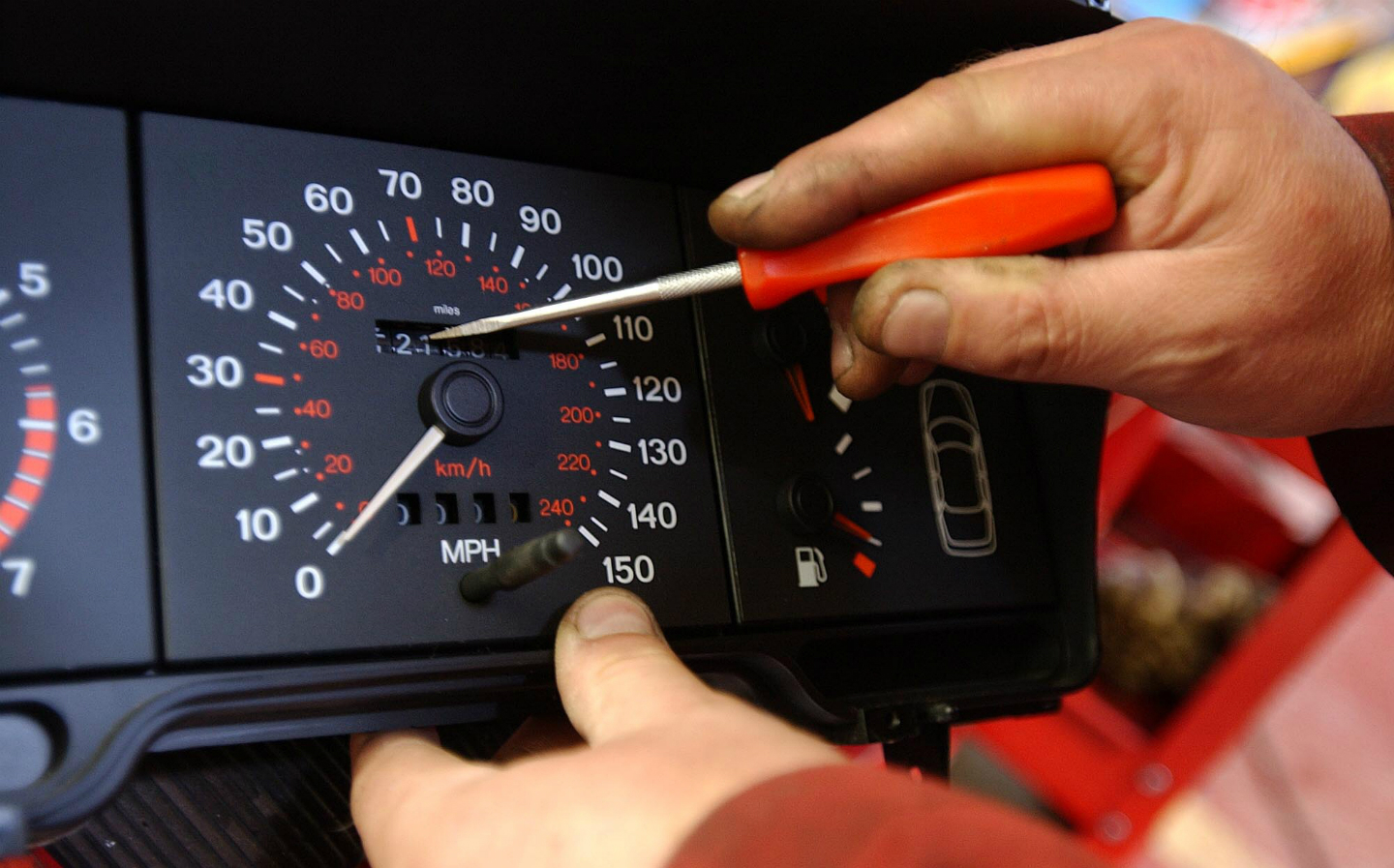There could be 2.5m clocked cars on UK roads, study suggests
BMW X5 is most likely car to have its mileage altered
ONE IN every 16 cars on the roads in the UK may have had their odometers tampered with, according to analysis of MOT test reports.
Rapid Car Check found that 160,430 vehicles it analysed had failed their MOTs due to a discrepancy in the mileage they had completed in between tests.
An overwhelming majority of the cars with discrepancies were found to have been made to look like they’d covered fewer miles than they had racked up in reality, with 149,767 (93%) of all cars with inconsistent mileages seeing their odometer mileage decrease between ordinance tests.
The analysis also discovered that 18,244 vehicles had failed their MOTs due to the odometer being converted from miles to kilometres, or vice versa. Of those vehicles, 7,561 (41%) had their mileages lowered in between tests.
Rapid Car Check said it had anlysed data from 2.5m cars, so by extrapolating its findings to cover the 38.7m vehicles on UK roads, there could be as many as 2.48m clocked cars and vans in the UK; around 6.4% of all vehicles on the road.
That percentage is considerably higher for certain models. The research found the most frequently-clocked car in the country was the BMW X5, with around one in nine (11.71%) examples of the premium SUV failing their MOTs for the discrepancy.
Some popular van models were deemed not to be roadworthy due to an improperly recorded mileage. More than one in eight (12.99%) of Ford Transits failed their MOT for mileages issues, with a marginally higher proportion (13.16%) of Vauxhall Combo vans also being affected by the issue.
While Rapid Car Check’s results didn’t indicate why the vehicles had their mileages doctored, vehicle history checker HPI said car sellers could be doing this to artificially to inflate the value of the vehicles, with low-mileage examples being more desirable.
HPI added that mileage doctoring could be a tactic some drivers use to avoid paying additional costs on a car they’re leasing or have bought using a personal contact purchase (PCP) finance deal. As some lease and PCP arrangements charge drivers per mile for exceeding an agreed mileage over the term of the agreement, altering the odometer could be a way for less honourable motorists to avoid paying additional fees when they return the car.
However, while it could save them a small amount of change in the short term, deliberately altering a car’s odometer can have serious ramifications further down the line. As cars often have minor and major services carried out at certain mileage intervals, a car that’s been made to look like it’s been used far less than it actually has is potentially at a much higher risk of suffering a failure caused by a worn-out part.
This, in turn, could cause the driver to have an accident and potentially endanger the lives of themselves and any passengers in the vehicle, as well as other road users.
While it isn’t an offence to alter or replace a vehicle’s odometer, you can be prosecuted by Trading Standards for misleading consumers if you sell a car that has had its mileage altered. This is regardless of whether you were involved in the act of tampering with the odometer, and even if you weren’t aware the car was displaying an incorrect mileage.
Revealed: the most commonly clocked cars in the UK
| Rank | Car | Total failed for mileage discrepancy | Total cars checked | Fail rate |
| 1 | BMW X5 | 882 | 7,531 | 11.71% |
| 2 | Vauxhall Vectra | 1,811 | 15,639 | 11.58% |
| 3 | Peugeot 206 | 1,391 | 12,227 | 11.38% |
| 4 | Fiat Punto | 1,331 | 12,755 | 10.44% |
| 5 | Renault Clio | 2,545 | 27,257 | 9.34% |
| 6 | Renault Megane | 1,368 | 15,293 | 8.95% |
| 7 | Nissan Micra | 1,189 | 13,730 | 8.66% |
| 8 | Volkswagen Passat | 2,577 | 29,887 | 8.62% |
| 9 | Ford Ka | 1,652 | 19,407 | 8.51% |
| 10 | Toyota Yaris | 1,662 | 19,810 | 8.39% |
Tweet to @J_S_Allen Follow @J_S_Allen
Car clocking hasn’t gone away, it’s gone hi-tech — and it’s big business
Car buyers warned of clocking risk as councils fail to tackle mileage tampering





